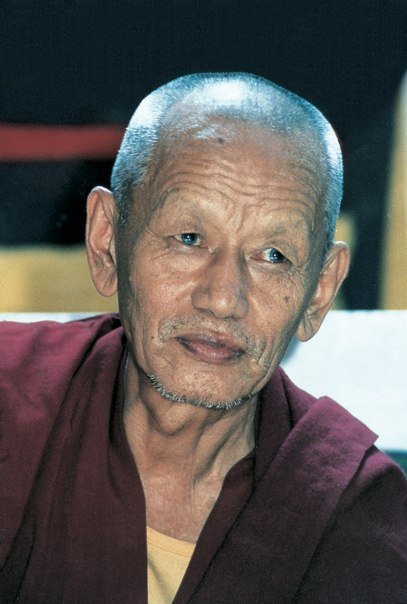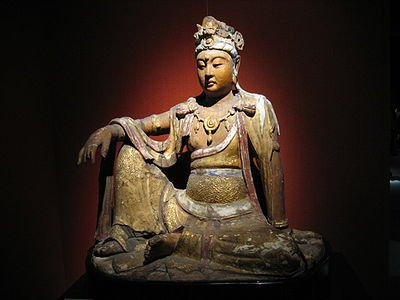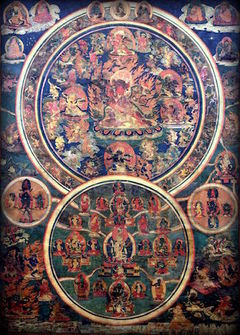
- Ven. Ghesce Yesce Tobten
Insegnamento sui “Tre aspetti principali del sentiero” conferiti dal Ven. Ghesce Yesce Tobten nel dicembre 1983: prima parte
Mi è stato chiesto di venire qui per passare un po di giorni, cosi ho pensato di usare il tempo in un modo significativo insegnando un breve testo che si chiama “I tre aspetti principali del sentiero”
Se condensiamo gli 84,000 tipi di insegnamenti che sono stati esposti dal Budda, questi possono essere trovati negli insegnamenti del Lam Rim, e, se vogliamo vedere quali sono i principali aspetti di questo Lam Rim, possiamo dire che sono Tre: appunto i Tre aspetti principali del sentiero.
Questi tre aspetti sono:
– l’ATTITUDINE EMERGENTE (NISHARANA) o DISGUSTO PER IL SAMSARA è, appunto, un’attitudine che sorge quando si arriva a comprendere realmente il Dharma).
– il PENSIERO ATRUISTICO DI OTTENERE l’ILLUMINAZIONE (BODHICITA)
– la COMPRENSIONE DELLA VACUITA’ (GIUSTA VISIONE) Continue reading
 L’equanimità viene talvolta descritta come una spaziosa tranquillità della mente, una calma radiosa o un equilibrio interiore. Tuttavia questo saldo equilibro non è qualcosa di lontano o distante dalla vita, ma si sviluppa all’interno della nostra disponibilità e capacità di andare incontro a tutti i momenti della vita con eguale rispetto, compassione e sensibilità.
L’equanimità viene talvolta descritta come una spaziosa tranquillità della mente, una calma radiosa o un equilibrio interiore. Tuttavia questo saldo equilibro non è qualcosa di lontano o distante dalla vita, ma si sviluppa all’interno della nostra disponibilità e capacità di andare incontro a tutti i momenti della vita con eguale rispetto, compassione e sensibilità. Avijja Sutta – Ignoranza
Avijja Sutta – Ignoranza The Tibetan Dhammapada, the Udanavarga (capp 29 – 33) – Compiled by DHARMATRATA
The Tibetan Dhammapada, the Udanavarga (capp 29 – 33) – Compiled by DHARMATRATA